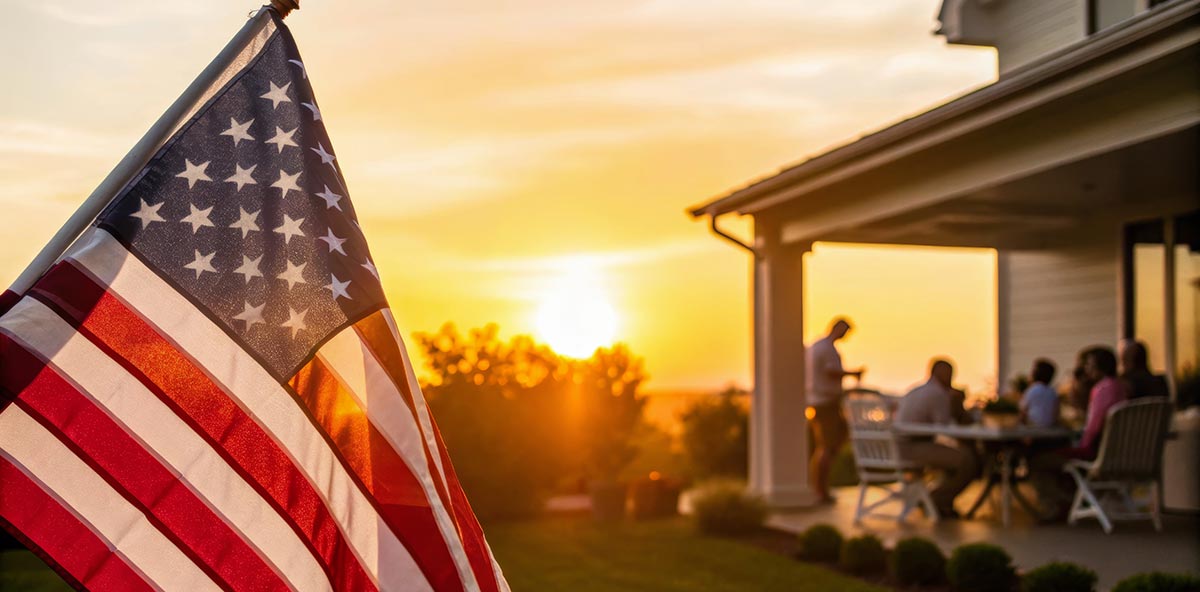What We Were Promised
I grew up in the shadows of a promise. It was never stated outright, but it was everywhere — in commercials, in classrooms, in the way my parents talked about the future. Work hard. Follow the rules. Be grateful. And in return, you’d make it. That was the agreement. That was the American Dream.
My parents believed it. As first-generation Italian immigrants, they came here because they had to — not because they thought the streets were paved with gold, but because the ones they left behind were cracked and empty. They worked long hours, spoke broken English, paid their taxes, and told me to do better than they did. Not just better — more. More education. More stability. More ease.
But somewhere along the way, the dream began to feel like a story we kept telling each other long after the truth had changed.
Cracks in the Foundation
By the time I was old enough to really look around — in college, in early jobs, in crowded apartments where the heat never worked — I began to see the gap between the story and the reality. I saw people who worked just as hard as my parents, harder even, still living paycheck to paycheck. I saw friends with degrees and ambition being swallowed by debt. I saw whole neighborhoods left behind while a few blocks over, condos rose like monuments to something no one could quite name.
I didn’t have the language for it at the time, but I felt it: the distance. The distance between what we were told and what we were living. Between rich and poor. Between belonging and exclusion. Between expectation and disappointment.
And so I started writing. Not because I had answers, but because I needed to understand the fracture. I needed to look at it head-on and ask: What happens when the dream breaks? What happens to the people inside it?
Writing Into the Ruins
I’ve never been interested in heroic narratives — the tidy arcs, the last-minute victories, the feel-good endings. Real life, as I’ve known it, is quieter than that. More complicated. And often, more painful.
In my writing, I try to make space for that truth. I write about men who are lost, not because they’ve failed, but because the map they were given never showed the real terrain. I write about immigrants and their children — about the tension between gratitude and grief, between tradition and survival. I write about the kind of loneliness that doesn’t announce itself, but lingers in grocery store aisles and late-night shifts and small, tired towns.
These stories aren’t glamorous. They don’t go viral. But they matter — because they reflect the lives so many people are quietly living. The ones we don’t put on billboards. The ones we don’t build slogans around.
The Myth That Won’t Die
The American Dream is elastic. Every time it’s exposed as broken, someone tries to patch it up, rebrand it, make it shinier. We see it in politics. We see it in real estate ads. We see it in the influencer culture that says, “If you just hustle hard enough, you too can be rich, happy, free.”
But there’s a cruelty in that message. It turns failure into a personal flaw. It ignores the systems that block people from opportunity, the generations of inequality, the randomness of luck. And it isolates people who are struggling, making them feel like they’re the only ones falling behind.
When we stop questioning the dream, we stop seeing the people it leaves out. And we stop imagining better ones.
The Space Between
There’s a reason my latest book is called The Distance Between Us. It’s about that gap — between people, between ideals and outcomes, between the surface and what’s underneath. It’s also about what we do with that distance. Do we ignore it? Try to leap over it? Or do we sit with it, map it, write our way through it?
For me, writing has always been a way of walking that space. It allows me to ask hard questions without demanding neat answers. It invites reflection over reaction. And maybe, if I’m lucky, it offers a bit of connection in a time that often feels fragmented and fast.
Dreaming Differently
I don’t think we need to abandon dreams. But I do think we need better ones. Dreams that aren’t rooted in competition or consumption, but in care. Dreams that include rest, dignity, community. Dreams that don’t require someone else’s loss to secure our gain.
That’s what I try to write toward — not just what’s broken, but what could be rebuilt. I don’t have blueprints. I don’t pretend to know the answers. But I believe that if we tell the truth about what isn’t working, we stand a better chance of creating something more honest, more human, and more sustainable.
A Final Thought
I write alone in a small house in the mountains of northern New Mexico. Outside my window, there are no skyscrapers or billboards or promises. Just sky. Just silence. Just space.
And yet, from here, I can still feel the distance — between past and present, between coastlines and cornfields, between the myth and the man I’ve become.
But distance doesn’t have to mean disconnection. If we pay attention — if we listen, if we write, if we speak honestly — maybe we can begin to close that space. Not with slogans. Not with spectacle. But with stories.
One voice at a time.
